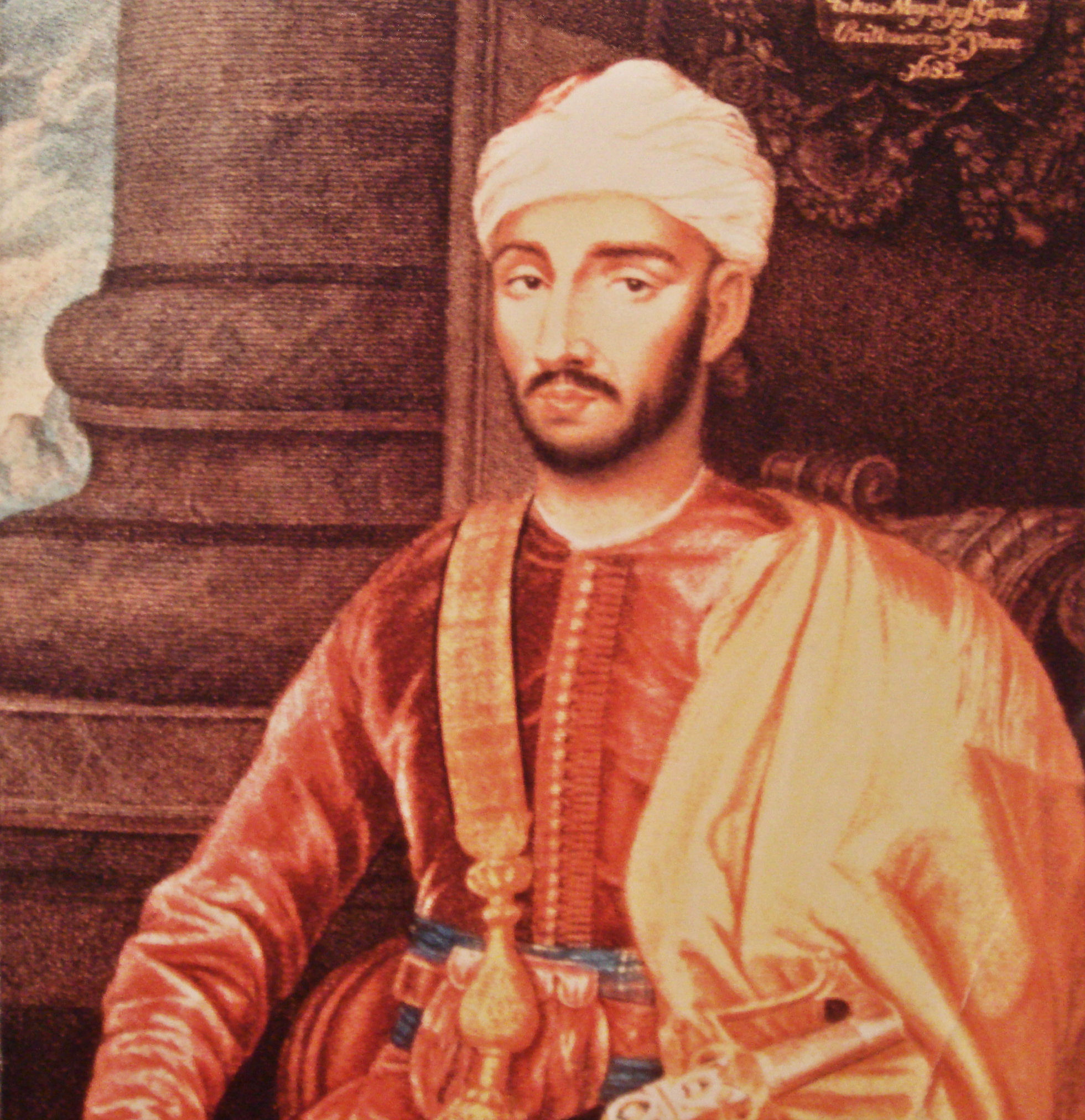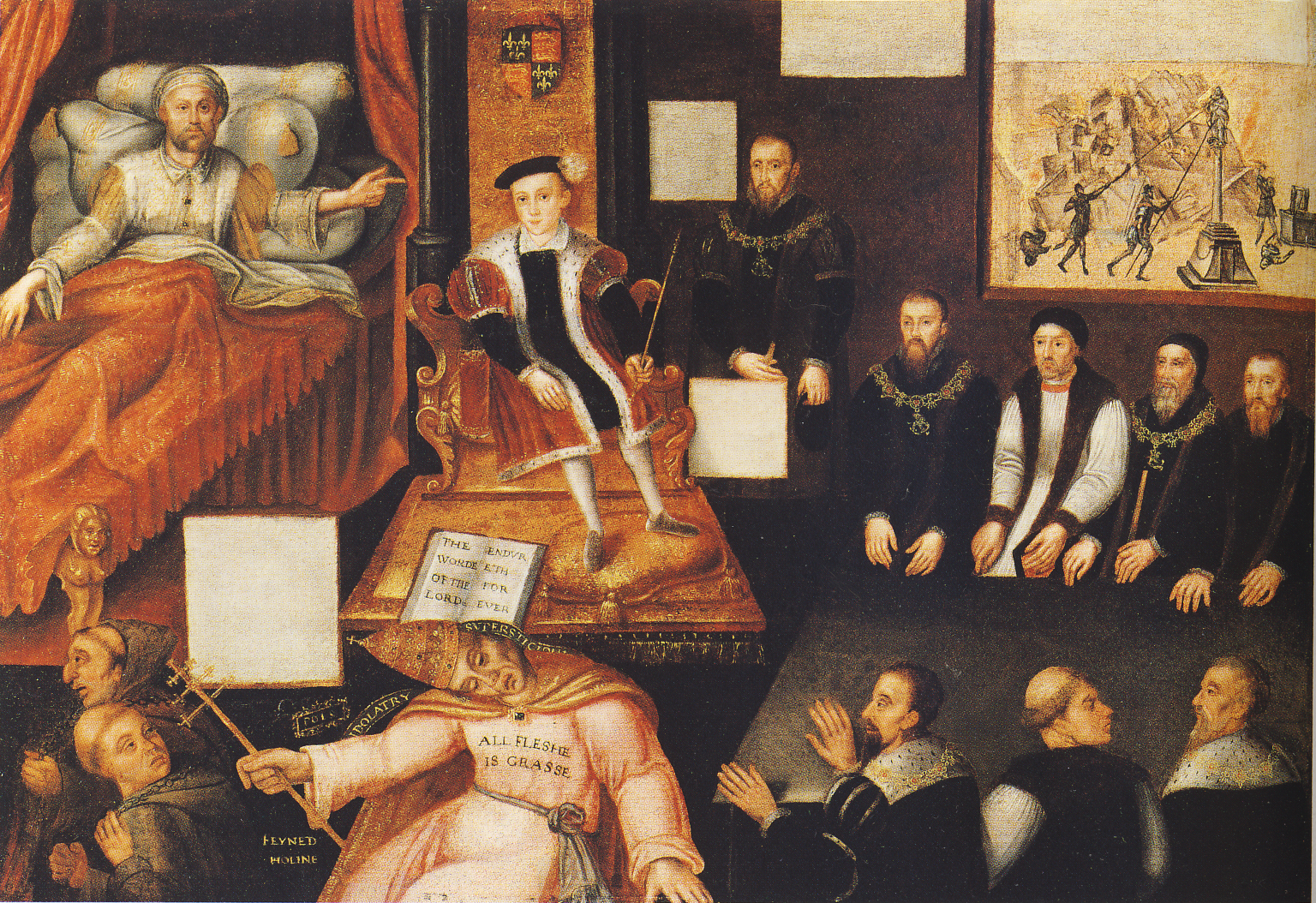|
Mohammed Bin Hadou
Mohammed ben Hadou (), also Mohammad bin Hadou, Mohammad bin Hadu or Muhammad ben Haddu al'Attar, was a Morocco, Moroccan ambassador sent to the English court of Charles II of England, Charles II by Muley Ismail in 1681–82.Wild enlightenment: the borders of human identity in the eighteenth century' by Richard Nash p.54- According to the contemporary English commentator John Evelyn, he was the son of an English woman. He arrived in England on 29 December 1681, and left on 23 July 1682.Performing identities on the Restoration stage' by Cynthia Lowenthal p.215 His six-month visit to England was highly commented upon, publicized in the ''London Gazette'' and was even the subject of occasional poems.Nabil Matar, ''Turks, Moors, and Englishmen in the Age of Discovery'', pp38f. He visited Oxford and Cambridge among many other places and became a Fellow of the Royal Society in April. John Evelyn recorded that he was "the fashion of the season", and commented on him that he was "a handso ... [...More Info...] [...Related Items...] OR: [Wikipedia] [Google] [Baidu] |
Mohammed Bin Hadou Moroccan Ambassador To Great Britain 1682
Muhammad ( ar, مُحَمَّد; 570 – 8 June 632 Common Era, CE) was an Arab religious, social, and political leader and the founder of Islam. According to Muhammad in Islam, Islamic doctrine, he was a prophet Divine inspiration, divinely inspired to preach and confirm the tawhid, monotheistic teachings of Adam in Islam, Adam, Abraham in Islam, Abraham, Moses in Islam, Moses, Jesus in Islam, Jesus, and other Prophets and messengers in Islam, prophets. He is believed to be the Seal of the Prophets within Islam. Muhammad united Arabian Peninsula, Arabia into a single Muslim polity, with the Quran as well as his teachings and practices forming the basis of Islamic religious belief. Muhammad was born approximately 570CE in Mecca. He was the son of Abdullah ibn Abd al-Muttalib and Amina bint Wahb. His father Abdullah was the son of Quraysh tribal leader Abd al-Muttalib ibn Hashim, and he died a few months before Muhammad's birth. His mother Amina died when he was six, lea ... [...More Info...] [...Related Items...] OR: [Wikipedia] [Google] [Baidu] |
Fellows Of The Royal Society
Fellowship of the Royal Society (FRS, ForMemRS and HonFRS) is an award granted by the judges of the Royal Society of London to individuals who have made a "substantial contribution to the improvement of natural knowledge, including mathematics, engineering science, and medical science". Fellowship of the Society, the oldest known scientific academy in continuous existence, is a significant honour. It has been awarded to many eminent scientists throughout history, including Isaac Newton (1672), Michael Faraday (1824), Charles Darwin (1839), Ernest Rutherford (1903), Srinivasa Ramanujan (1918), Albert Einstein (1921), Paul Dirac (1930), Winston Churchill (1941), Subrahmanyan Chandrasekhar (1944), Dorothy Hodgkin (1947), Alan Turing (1951), Lise Meitner (1955) and Francis Crick (1959). More recently, fellowship has been awarded to Stephen Hawking (1974), David Attenborough (1983), Tim Hunt (1991), Elizabeth Blackburn (1992), Tim Berners-Lee (2001), Venki Ramakrishnan ... [...More Info...] [...Related Items...] OR: [Wikipedia] [Google] [Baidu] |
1680s In England
Year 168 ( CLXVIII) was a leap year starting on Thursday (link will display the full calendar) of the Julian calendar. At the time, it was known as the Year of the Consulship of Apronianus and Paullus (or, less frequently, year 921 ''Ab urbe condita''). The denomination 168 for this year has been used since the early medieval period, when the Anno Domini calendar era became the prevalent method in Europe for naming years. Events By place Roman Empire * Emperor Marcus Aurelius and his adopted brother Lucius Verus leave Rome, and establish their headquarters at Aquileia. * The Roman army crosses the Alps into Pannonia, and subdues the Marcomanni at Carnuntum, north of the Danube. Asia * Emperor Ling of Han succeeds Emperor Huan of Han as the emperor of the Chinese Han Dynasty; the first year of the ''Jianning'' era. Births * Cao Ren, Chinese general (d. 223) * Gu Yong, Chinese chancellor (d. 243) * Li Tong, Chinese general (d. 209) Deaths * Anicet ... [...More Info...] [...Related Items...] OR: [Wikipedia] [Google] [Baidu] |
17th-century Diplomats
The 17th century lasted from January 1, 1601 ( MDCI), to December 31, 1700 ( MDCC). It falls into the early modern period of Europe and in that continent (whose impact on the world was increasing) was characterized by the Baroque cultural movement, the latter part of the Spanish Golden Age, the Dutch Golden Age, the French '' Grand Siècle'' dominated by Louis XIV, the Scientific Revolution, the world's first public company and megacorporation known as the Dutch East India Company, and according to some historians, the General Crisis. From the mid-17th century, European politics were increasingly dominated by the Kingdom of France of Louis XIV, where royal power was solidified domestically in the civil war of the Fronde. The semi-feudal territorial French nobility was weakened and subjugated to the power of an absolute monarchy through the reinvention of the Palace of Versailles from a hunting lodge to a gilded prison, in which a greatly expanded royal court could be mo ... [...More Info...] [...Related Items...] OR: [Wikipedia] [Google] [Baidu] |
18th-century Moroccan People
The 18th century lasted from January 1, 1701 ( MDCCI) to December 31, 1800 ( MDCCC). During the 18th century, elements of Enlightenment thinking culminated in the American, French, and Haitian Revolutions. During the century, slave trading and human trafficking expanded across the shores of the Atlantic, while declining in Russia, China, and Korea. Revolutions began to challenge the legitimacy of monarchical and aristocratic power structures, including the structures and beliefs that supported slavery. The Industrial Revolution began during mid-century, leading to radical changes in human society and the environment. Western historians have occasionally defined the 18th century otherwise for the purposes of their work. For example, the "short" 18th century may be defined as 1715–1789, denoting the period of time between the death of Louis XIV of France and the start of the French Revolution, with an emphasis on directly interconnected events. To historians who expand ... [...More Info...] [...Related Items...] OR: [Wikipedia] [Google] [Baidu] |
17th-century Moroccan People
The 17th century lasted from January 1, 1601 ( MDCI), to December 31, 1700 ( MDCC). It falls into the early modern period of Europe and in that continent (whose impact on the world was increasing) was characterized by the Baroque cultural movement, the latter part of the Spanish Golden Age, the Dutch Golden Age, the French ''Grand Siècle'' dominated by Louis XIV, the Scientific Revolution, the world's first public company and megacorporation known as the Dutch East India Company, and according to some historians, the General Crisis. From the mid-17th century, European politics were increasingly dominated by the Kingdom of France of Louis XIV, where royal power was solidified domestically in the civil war of the Fronde. The semi-feudal territorial French nobility was weakened and subjugated to the power of an absolute monarchy through the reinvention of the Palace of Versailles from a hunting lodge to a gilded prison, in which a greatly expanded royal court could be more easil ... [...More Info...] [...Related Items...] OR: [Wikipedia] [Google] [Baidu] |
Ambassadors Of Morocco To The Kingdom Of England
An ambassador is an official envoy, especially a high-ranking diplomat who represents a state and is usually accredited to another sovereign state or to an international organization as the resident representative of their own government or sovereign or appointed for a special and often temporary diplomatic assignment. The word is also used informally for people who are known, without national appointment, to represent certain professions, activities, and fields of endeavor, such as sales. An ambassador is the ranking government representative stationed in a foreign capital or country. The host country typically allows the ambassador control of specific territory called an embassy, whose territory, staff, and vehicles are generally afforded diplomatic immunity in the host country. Under the Vienna Convention on Diplomatic Relations, an ambassador has the highest diplomatic rank. Countries may choose to maintain diplomatic relations at a lower level by appointing a chargé d ... [...More Info...] [...Related Items...] OR: [Wikipedia] [Google] [Baidu] |
Morocco–United Kingdom Relations
Morocco–United Kingdom relations are the bilateral relations that exist between the Kingdom of Morocco and the United Kingdom. History First exchanges According to some accounts, in the early 13th century, King John of England (1167–1216) sent an embassy to Almohad Sultan Muhammad al-Nasir (1199–1213) to request military support and an alliance against France. At home, King John was faced with a dire situation in which his barons revolted against him, he had been excommunicated by the Pope and France was threatening to invade. The embassy of three was led by Bishop Roger, and King John supposedly offered to convert to Islam and to pay a tribute to al-Nasir in exchange for his help. Al-Nasir apparently dismissed the proposal. Anglo-Moroccan alliance Relations developed following the sailing of ''The Lion'' to Morocco in 1551. According to Richard Hakluyt, quoting Edmund Hogan, the ruler "Abdelmelech" (Abu Marwan Abd al-Malik I) bore "a greater affection to our Nation ... [...More Info...] [...Related Items...] OR: [Wikipedia] [Google] [Baidu] |
Moroccan Diplomats
Moroccan may refer to: * Something or someone from, or related to the country of Morocco * Moroccan people * Moroccan Arabic, spoken in Morocco * Moroccan Jews See also * Morocco leather Morocco leather (also known as Levant, the French Maroquin, or German Saffian from Safi, Morocco, Safi, a Moroccan town famous for leather) is a Vegetable tanning, vegetable-tanned leather known for its softness, pliability, and ability to take c ... * * {{disambig Language and nationality disambiguation pages ... [...More Info...] [...Related Items...] OR: [Wikipedia] [Google] [Baidu] |
Islam And Protestantism
Protestantism and Islam entered into contact during the early-16th century when the Ottoman Empire, expanding in the Balkans, first encountered Calvinist Protestants in present-day Hungary and Transylvania. As both parties opposed the Austrian Holy Roman Emperor and his Roman Catholic allies, numerous exchanges occurred, exploring religious similarities and the possibility of trade and military alliances. The early Protestants and Turks established a sense of mutual tolerance and understanding, despite theological differences on Christology, considering each other to be closer to one another than to Catholicism. The Ottoman Empire supported the early Protestant churches and contributed to their survival in dire times. Martin Luther regarded the Ottomans as allies against the papacy, considering them the "rod of God's wrath against Europe's sins." The allegiances of the Ottoman Empire and threat of Ottoman expansion in Eastern Europe pressured King Charles V to sign the ... [...More Info...] [...Related Items...] OR: [Wikipedia] [Google] [Baidu] |
Socinians
Socinianism () is a nontrinitarian belief system deemed heretical by the Catholic Church and other Christian traditions. Named after the Italian theologians Lelio Sozzini (Latin: Laelius Socinus) and Fausto Sozzini (Latin: Faustus Socinus), uncle and nephew, respectively, it was developed among the Polish Brethren in the Polish Reformed Church during the 16th and 17th centuries and embraced by the Unitarian Church of Transylvania during the same period. It is most famous for its Non-trinitarian Christology but contains a number of other heretical beliefs as well. Origins The ideas of Socinianism date from the wing of the Protestant Reformation known as the Radical Reformation and have their root in the Italian Anabaptist movement of the 1540s, such as the anti-trinitarian Council of Venice in 1550. Lelio Sozzini was the first of the Italian anti-trinitarians to go beyond Arian beliefs in print and deny the pre-existence of Christ in his ''Brevis explicatio in primum Johannis cap ... [...More Info...] [...Related Items...] OR: [Wikipedia] [Google] [Baidu] |




.jpg)


